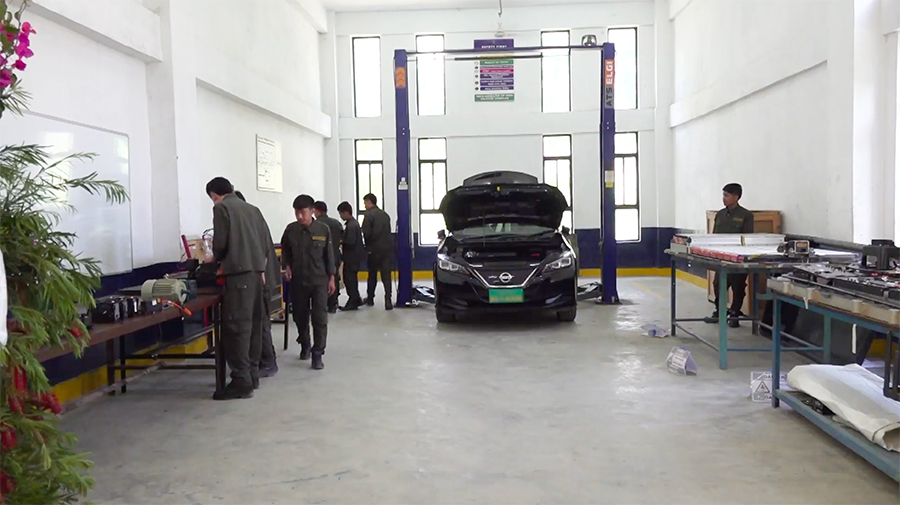 To meet the growing demand for skilled professionals in the electric vehicle (EV) sector, the Technical Training Institute–Samthang in Wangdue Phodrang started the Electric Vehicle Technician course. The course is part of an ongoing Technician and Vocational Education and Training reform initiative.
To meet the growing demand for skilled professionals in the electric vehicle (EV) sector, the Technical Training Institute–Samthang in Wangdue Phodrang started the Electric Vehicle Technician course. The course is part of an ongoing Technician and Vocational Education and Training reform initiative.
The six-month training began yesterday, coinciding with the Social Forestry Day.
 Nine male trainees with a basic knowledge of automotive technology are taking part in the course.
Nine male trainees with a basic knowledge of automotive technology are taking part in the course.
The initiative is being supported by the Asian Development Bank.
The trainees will receive both theoretical and hands-on experience, enabling them to effectively service and maintain electric vehicles.
They will undergo four months of training at the institute and another two months in industrial placement for practical learning.
According to the trainees, they could foresee a brighter future, as electric vehicles are becoming increasingly popular in the country.
The country has more than 580 electric vehicles on the road, according to Bhutan Construction and Transport Authority’s 2022-2023 annual report.
Tandin Dorji Penjor, a trainee said “I have worked in the field of electric vehicles without prior training. So, I am attending the training here in the first batch. I could see an opportunity for us in future, as the demand for EV technicians is increasing in the market.”
Tshering Dorji, another trainee said “We hope to establish a workshop for electric vehicles in the future after forming a group if the government supports us.”
The course will be provided by two trained professional trainers, including a foreigner.
Tashi Dorji Tamang, a trainer said “The things will be included like basics from the safety measures like using high voltage gloves and the way we should be handling high voltage circuits and lines while working in EV. We would be looking into the working mechanism of EVs’ systems like batteries, reduction gearbox and there are various computers and control modules that control EVs’ working. And we will also be covering the charging system.”
Currently, due to the lack of dedicated repair service centres and qualified EV technicians, many EV owners face difficulties, often relying on manufacturer-operated service centres for maintenance and repairs.
So, this kind of training is paving the way for a skilled workforce as the country moves toward cleaner and greener transportation.
Changa Dorji, Wangdue Phodrang
Edited by Tshering Zam









